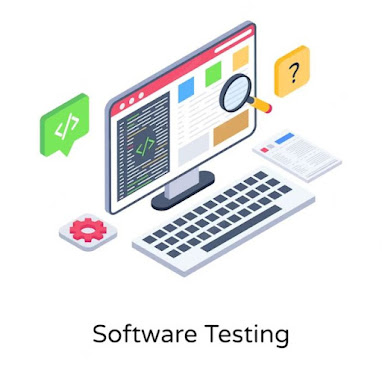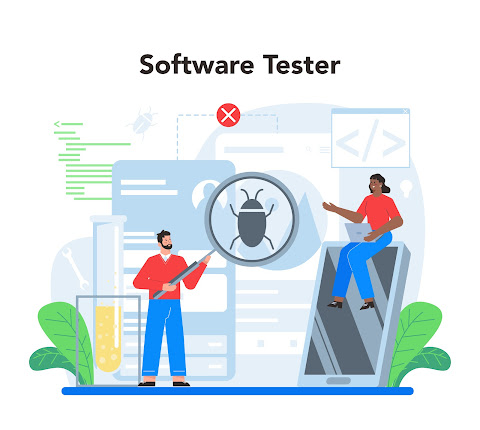Master the Art of Software Testing with Our Comprehensive Training Course in Noida
Introduction to Software Testing: Ensuring Excellence in Digital Solutions
In the fast-paced realm of software development, where innovation meets functionality, the role of software testing emerges as a crucial guardian of quality and reliability. Picture this: a meticulously crafted application, designed to simplify tasks or entertain, running seamlessly across devices and platforms, catering to user needs with finesse. This harmonious symphony between code and user experience is the result of rigorous software testing.
Unveiling the Essence of Software Testing:
At its core, software testing is an intricate process akin to an explorer's journey through uncharted digital territories. It involves subjecting software applications, be it websites, mobile apps, or desktop software, to a battery of meticulous examinations. The goal? To detect any lurking glitches, bugs, or imperfections that might mar the flawless performance users expect.
The Quest for Perfection:
Software testing isn't merely a checklist to be marked off hurriedly. It's a quest for perfection, a meticulous unraveling of codes and functionalities, a relentless pursuit of the ultimate user experience. Imagine a website that loads seamlessly across browsers, a mobile app that responds instantaneously, a software suite that remains resilient even under stress – this is the pinnacle that software testing endeavors to achieve.
Why Software Testing Matters:
- Enhanced User Satisfaction: Software testing transforms user expectations into realities. It ensures that applications are intuitive, user-friendly, and bug-free, thus elevating user satisfaction.
- Reliability Unveiled: Robust software doesn't just meet expectations; it exceeds them. Through testing, vulnerabilities are identified and rectified, leading to reliable performance.
- Business Reputation: A reputation built on flawless software resonates. Tested applications build trust among users and stakeholders, bolstering your brand's image.
- Cost-Effectiveness: Detecting and rectifying defects early in development saves both time and resources, making software testing a wise investment.
- Continuous Improvement: The feedback loop of testing paves the way for continuous enhancement, leading to iterative developments and improved iterations.
The Path Ahead:
In this dynamic landscape, where technology's pace is matched only by user expectations, software testing stands as a sentinel guarding against mediocrity. This series will delve into the intricacies of software testing, exploring its diverse types, methodologies, and tools. We will uncover the art of identifying defects, optimizing performance, and ensuring that every line of code contributes to an exceptional user experience.
What is Software Testing?
Software testing is a critical process in the software development lifecycle that aims to identify and rectify defects, errors, and vulnerabilities within software applications. It involves systematically evaluating software to ensure that it meets the specified requirements, functions as intended, and delivers a seamless user experience. The primary goal of software testing is to enhance the quality, reliability, and performance of software products before they are deployed to end-users.
Key Objectives of Software Testing:
- Detecting Defects: Software testing involves running various tests on the software to uncover defects, bugs, or glitches that might impact its functionality or performance.
- Verifying Requirements: Testing helps confirm that the software aligns with the specified requirements and meets user expectations. It ensures that the software does what it's intended to do.
- Validating User Experience: Beyond functional correctness, testing also assesses the software's usability, user-friendliness, and overall user experience.
- Ensuring Reliability: Robust testing reduces the likelihood of software crashes, failures, and unexpected behavior, contributing to the software's reliability.
- Optimizing Performance: Testing includes evaluating the software's responsiveness, speed, scalability, and resource consumption under various conditions.
- Enhancing Security: Security testing identifies vulnerabilities and weaknesses that could be exploited by malicious actors, thus safeguarding sensitive data.
- Facilitating Maintenance: Thorough testing assists in identifying issues early, reducing the cost and complexity of fixing defects post-deployment.
Types of Software Testing:
- Manual Testing: Human testers execute test cases without automation tools, simulating user interactions and evaluating software behavior.
- Automated Testing: Testing is performed using automation tools to increase efficiency, accuracy, and repeatability of tests.
- Functional Testing: Focuses on evaluating the software's functional aspects against its specified requirements.
- Non-Functional Testing: Involves testing non-functional attributes such as performance, security, usability, and compatibility.
- Regression Testing: Ensures that recent code changes haven't adversely affected previously tested functionalities.
- Performance Testing: Assesses how the software performs under different loads and conditions.
- Security Testing: Identifies vulnerabilities and weaknesses that could be exploited by unauthorized users.
- User Acceptance Testing (UAT): End-users validate whether the software meets their needs and works as expected.
- Integration Testing: Checks the interactions between different modules or components of the software.
Importance of Software Testing:
- Quality Assurance: Thorough testing enhances software quality, reducing the likelihood of defects reaching end-users.
- Cost Savings: Identifying and fixing defects early in the development process is less expensive than post-deployment corrections.
- Customer Satisfaction: Reliable and bug-free software leads to improved user satisfaction and loyalty.
- Risk Mitigation: Testing minimizes the risk of software failures that could lead to financial losses or reputational damage.
- Compliance: Certain industries require rigorous testing to adhere to regulatory standards and ensure data security.
Why Enroll in Our Software Testing Training Course?
What You'll Learn:
- Introduction to Software Testing: Grasp the basics of software testing, its significance in the development cycle, and the different testing levels and types.
- Manual Testing Techniques: Master the art of manual testing, understanding test case creation, execution, and defect reporting.
- Automation Testing with Industry Tools: Dive into automation testing using industry-leading tools like Selenium, Appium, and more, to enhance your efficiency and testing coverage.
- Performance and Load Testing: Learn to evaluate software performance under various conditions, ensuring its responsiveness and stability.
- Bug Tracking and Reporting: Explore the process of identifying, documenting, and tracking bugs to facilitate clear communication between testers and developers.
Why Choose Our Noida Training Center?
- Experienced and Expert Faculty: Learn from seasoned professionals in the software testing domain who bring years of industry experience to the classroom.
- Hands-on Practical Training: Gain real-world exposure through practical, hands-on training that simulates actual testing scenarios.
- Industry-Relevant Curriculum: Our curriculum is constantly updated to align with the latest industry trends and technologies, ensuring you're always ahead of the curve.
- State-of-the-Art Infrastructure: Train in a conducive learning environment equipped with the latest tools and technology to facilitate effective learning.
Who Can Join?
- Our Software Testing Training Course is open to:
- Fresh Graduates: Kickstart your career with a specialization that's in high demand across industries.
- Working Professionals: Elevate your skills to climb the career ladder or transition into the dynamic field of software testing.
- Quality Analysts: Strengthen your existing testing skills with advanced techniques and methodologies.



Comments
Post a Comment